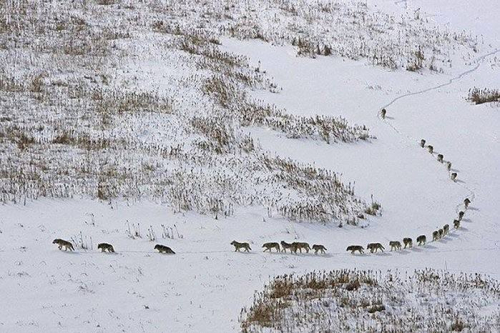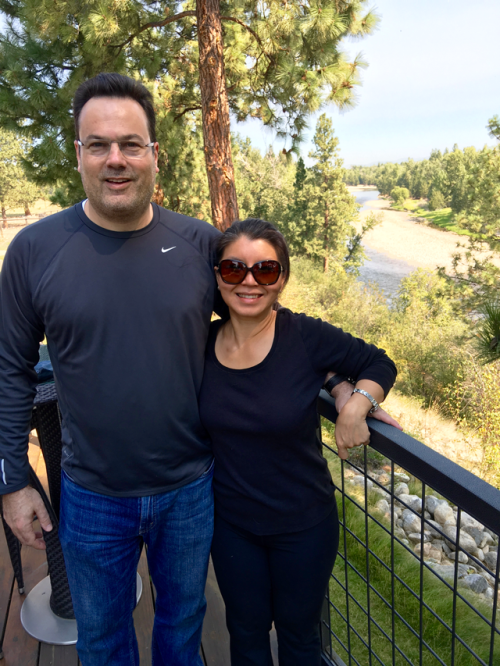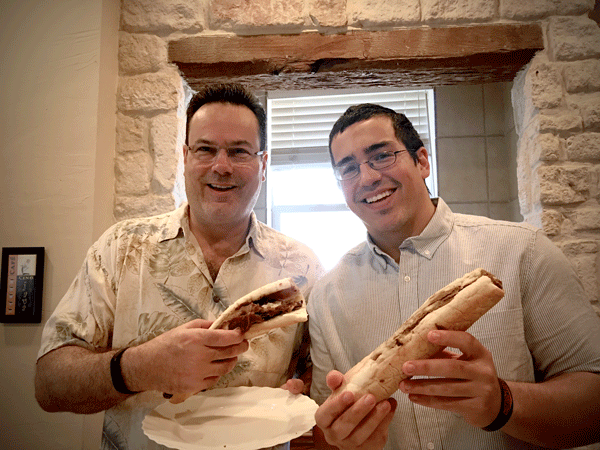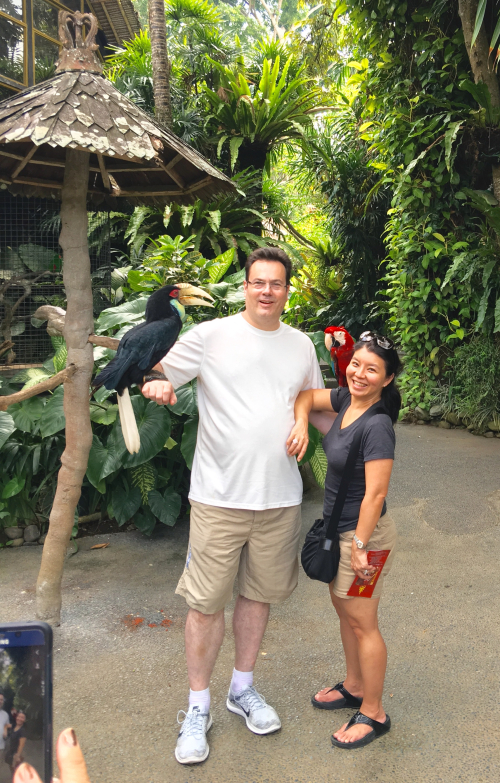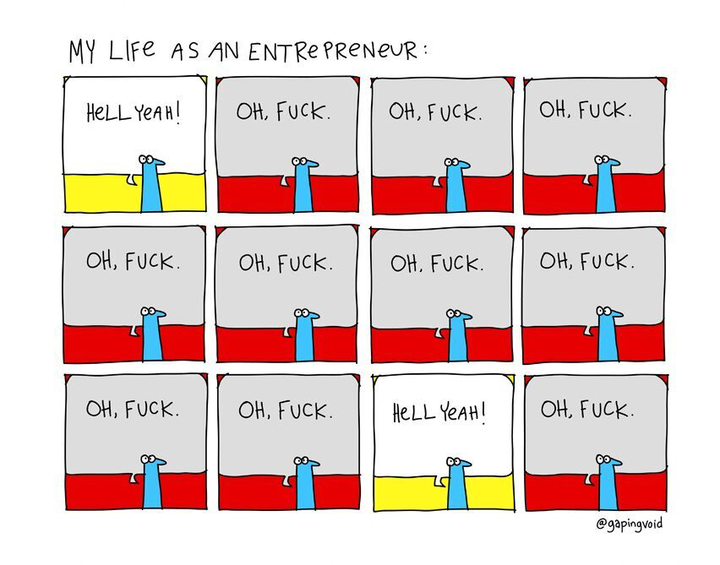I'm a city boy (and decidedly not an expert on wolves), and the following leadership parable might be more instructive than true … Regardless, it's a lesson worth sharing.
So, what can this picture of a wolf pack teach us?
The first 3 are the older or sick & they set the pace of the group … They are pushed forward by the pack. If they weren't, they would be left behind and lose contact with the pack.
The following 5 are the stronger wolves supporting those older wolves.
In the center follow the remaining members of the pack. And, towards the back, are a group of 5 more strong wolves as protection.
Last, alone, follows the leader. It controls everything from the rear.
That position can control the whole group, decide the direction to follow & anticipate the attacks of opponents. The pack follows the rhythm of the elders & the head of command that imposes the spirit of mutual help not leaving anyone behind.
As an entrepreneur, it's easy to want to be on the front lines. The company and its employees are your responsibility … So, you must manage them hands on. Right?
In reality, that's not the case.
If you surround your people with strong leaders, you can invest your time on the company, instead of in the company, stopping in to provide the occasional directional encouragement.
Building a team you can trust not only frees you up, but strengthens the weaker people as well.
What do you think?

